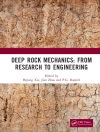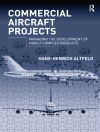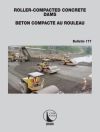This book contains an introduction and 20 studies, each describing a recent research investigation in the area of sustainable and resilient buildings, built environment infrastructure and renewable energy. Contributions are from many different countries of the world and on a range of topics, representing a sample of research within the ‘sustainable energy and buildings’ field. The book begins with chapters on the sustainable design of buildings, followed by descriptions of issues relating to the renovation, restoration and reconstruction of existing buildings, or in one case a railway wagon. The next part of the book covers factors that form barriers or impediments to low or zero carbon buildings, followed by studies of issues relating to policy and certification. There then follow four chapters on various topics related to sustainable buildings – undergraduate courses, insurance issues, biophilia relating to buildings and thermal conductivity measurement. There are several chapters relating to renewable energy, followed by two chapters with a sustainable transport theme, one relating to electric vehicles, and the other about a sustainable road infrastructure. The final chapter is on the manufacture of sustainable building components for the UK housing sector. The book is of use to engineers, scientists, researchers, practitioners, academics and all those who are interested to develop and use sustainability science and technology for the betterment of our planet and humankind, and to mitigate climate change reality.
İçerik tablosu
Cultural Wagon in Villa María, Córdoba, Argentina.- Sustainable Housing Solutions.- Investigating the Application of LEED And BREEAM Certification Schemes for Buildings In Kazakhstan.- Coordinated Control Strategy to Improve Performance of PMSG Wind Power Systems.- Examining Undergraduate Courses Relevant to the Built Environment in the 4IR Era: A Delphi Study Approach.- Future Energy-Related House Renovations in Sweden: One-Stop-Shop as a Guide of the Renovation Decision-Making Journey.- Replacing Fossil Fuels by On-Site Sources of Energy in a Residential Building in Chalus, Iran.- Spectral Analysis of a Smart Switchable Polymer Dispersed Liquid Crystal (PDLC) Glazing for Building Application.- Crisis of Institutional Change: Improving Restoration and Reconstruction Methods for Estate Cultural Heritage.- System Dynamics Analysis of Energy Policies on Buildings Performance.- New Methodology for Measuring the Thermal Conductivity of Small Samples Using the Boxes Method With Reduced Sensors.- Simulation of an Adsorption Machine with Auxiliary Heater For CO2 – Neutral Air Conditioning of Electric Utility Vehicles.- Barriers to the Adoption of Zero Carbon Emissions In Buildings: The South African Narrative.- An Appraisal of the Level of Awareness and Adoption of Insurance Policies on Sustainable Construction.- Sustainable Road Infrastructure in Rural Areas in South Africa – A Preliminary Study.- To What Extent Is Biophilia Implemented in the Built Environment to Improve Health and Wellbeing? ? State of the Arts Review and a Holistic Biophilic Design Framework.- Greening Existing Garment Buildings: A Case of Sri Lanka.- Unearthing the Factors Impeding Sustainable Construction in Developing Countries ? A PLS-SEM Approach.- Designing Active Buildings.- The Possibility of Integrating Bio-Technologies into Building Envelops: A New Approach to Sustainable Buildings.
Yazar hakkında
Dr. Robert Howlett is the Executive Chair of KES International, a non-profit organization that facilitates knowledge transfer and the dissemination of research results in areas including intelligent systems, sustainability and knowledge transfer. He is a Visiting Professor at ‘Aurel Vlaicu’ University of Arad, Romania, and Bournemouth University in the UK. His technical expertise is in the use of intelligent systems to solve industrial problems. He has been successful in applying artificial intelligence, machine learning and related technologies to sustainability and renewable energy systems; condition monitoring, diagnostic tools and systems; and automotive electronics and engine management systems. His current research work is focused on the use of smart microgrids to achieve reduced energy costs and lower carbon emissions in areas such as housing and protected horticulture.
Dr. John Littlewood graduated in Building Surveying, holds a Ph.D. in Building Performance Assessment, and is a Chartered Building Engineer. He is Head of the Sustainable and Resilient Built Environment group in Cardiff School of Art & Design at Cardiff Metropolitan University (UK). He coordinates three Professional Doctorates in Art & Design, Engineering and Sustainable Built Environment, plus contributing to teaching in Architectural Design & Technology. John’s research is industry focused, identifying and improving fire and thermal performance in existing and new dwellings, using innovative materials and construction and also improving occupant quality of life and thermal comfort. He has authored and co-authored 150 peer-reviewed publications and was also Co-Editor for the ‘Smart Energy Control Systems for Sustainable Buildings’ book published in June 2017.
Dr. Lakhmi C. Jain, Ph.D., M.E., B.E. (Hons), Fellow (Engineers Australia), is with the University of Technology Sydney, Australia, and Liverpool Hope University, UK. Professor Jain founded the KES International for providing a professional community the opportunities for publications, knowledge exchange, cooperation and teaming. Involving around 5, 000 researchers drawn from universities and companies worldwide, KES facilitates international cooperation and generates synergy in teaching and research. KES regularly provides networking opportunities for professional community through one of the largest conferences of its kind in the area of KES.












